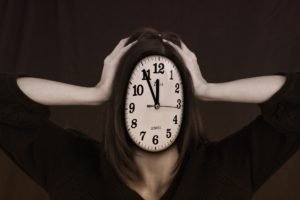
My high school’s cafeteria lunches featured a build-your-own sushi bar. Teslas and Range Rovers littered the drop-off line. One time, a Fiji Water shortage caused a schoolwide panic.
The Latin School of Chicago is an elite prep school whose alumni include Nancy Reagan and the Governor of Illinois’ children. Today, I think of Latin as a microcosm for the worst aspects of America. Tuition costs as much as a brand-new BMW, and in a majority-minority city, almost two-thirds of Latin students are white and less than a quarter of faculty identify as people of color.
Before I started seventh grade, our school got its first Black headmaster. Strikingly similar to the United States’ culture during the Obama years, the school began to see itself as post-racial. Many teachers, students and parents became either unable or unwilling to voice the unspoken problems that permeated daily interactions in every classroom, for fear of disturbing the false sense of peace.
This illusion began to shatter during Trump’s rise to power. But this summer, sparked by the Black Lives Matter movement sweeping the country, it came to a monumental crash.
Like many privileged private schools across the country, students and alumni took to Instagram to call out racist peers, parents and teachers, while also highlighting the often apathetic administration that failed to hold students accountable, letting problematic behavior continue.
The Instagram account, @survivorsoflatin, received more than 400 submissions and amassed 3,334 followers. It recounted such brutal instances of racism, classism, sexism, homophobia and xenophobia that Injustice Watch wrote an article about the school.
The first time I read through the published posts, I felt sick. A pit weighed down my stomach and my hands felt shaky as I numbly scrolled, my eyes crinkling against the unforgiving blue light as I learned about the multitudes of trauma my classmates were forced to endure.
I’d been ignorant about so many of my classmates’ experiences, and blind to the degree of privilege I possessed. Yes, I’d been on the receiving end of a few of these comments, but where had I been while so many other incidents of racism and classism had gone on?
As a brown woman from a Muslim family, I didn’t have any misconceptions about Latin being a tolerant utopia. My circle of friends and I used to joke about the school’s culture, too young and naïve to do anything but laugh at its ludicrousness.
The boys who would constantly offer girls copious amounts of alcohol to increase their chances of having sex were just desperate. The classmate who had a Ku Klux Klan portrait hanging in his living room was just weirdly Southern.
A girl I’d known since kindergarten came up to me unprompted, informing me that the Quran was “a piece of s—.” A boy, who was also brown, turned to me after I’d referred to myself as a feminist and kindly let me know that I’d actually be really hot if I didn’t talk so much.
Yet I was still under the misplaced delusion that these were just isolated incidents, more indicative of teenage cruelty. I didn’t yet have the perspective or understanding to articulate what was actually happening. My identity was being weaponized, turned against me in the form of personal attacks.
This summer, my friends and I were swept away from the new lives we’d created in college and forced to return home. I couldn’t remember the last time we had all been in Chicago together at the same time. It was our chance to delve back into who we’d been in high school.
We spent our pandemic summer inside a bubble we created for ourselves, where we could unpack our shared traumas with an awareness and maturity that can only come from growing up.
We each had our share of stories. Not to linger on identity tropes, but our friend group consists of two gay men, one Black man, two white women and me. Instead of briskly laughing away incidents, we unpacked them, taking the time to collectively examine events we’d previously kept to ourselves.
Our conversation showed me a more nuanced version of my high school. I could let go of the guilt and be grateful for the joys in my life that I still associate with it — the amazing academics, the teachers who mentored me, the friendships I still cherish. It felt therapeutic and we healed ourselves, together.
In high school, I harbored this unbreakable restlessness. I kept telling myself that my life would really start once I left and that I could go on to fix the world. Maybe it’s cynicism or a new dose of reality, but I no longer believe the inequalities we see playing out in our lives and our politics can or will be fixed so quickly.
But what I take solace and find comfort in are the small enclaves of love we can create for ourselves as we gear up to start to slowly change our world. These small realizations and conversations are where it all starts.
Times are changing. In response to @survivorsoflatin, current students organized a protest outside the school. We went and were surprised to find we were some of the only people from our year.
But we were touched by the steely determination from all the students, parents and teachers who showed up with concrete changes they wanted from the school, signaling what will hopefully be a new era at Latin.
Zara Khan is a student at the University of California Berkeley. This article was originally published in The Daily Californian and is posted here with permission from Zara Khan.



